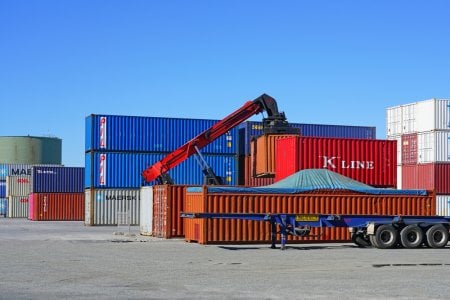Massive cut on 500 tariffs could save Aussies money and reduce household expenses
By
VanessaC
- Replies 71
Australia is gearing up for a significant economic shift.
The government has announced that it will scrap nearly 500 tariffs on imported goods, a decision that promises to ease the financial strain on both businesses and consumers.
This is the largest change to the tariff system in over twenty years, and it's expected to have a tangible impact on the cost of living for many Australians.
Starting 1 July, a wide array of everyday items, including toothbrushes, dishwashers, washing machines, fridges, toasters, pyjamas, ballpoint pens, and even menstrual and sanitary products, may see a reduction in price.
This is because the tariffs—taxes imposed on imported goods—that currently add to the cost of these items will be abolished.
It's a change that's not just about saving a few cents here and there; it's about making the cost of living more manageable, especially at a time when every penny counts.
Treasurer Jim Chalmers highlighted that this tariff reform is expected to save businesses more than $30 million in compliance costs each year—a significant figure, considering that the administrative burden of managing tariffs can be both costly and time-consuming for businesses.
By reducing these expenses, companies can potentially pass on the savings to consumers, leading to lower prices for a variety of goods.
Moreover, the reform is set to streamline approximately $8.5 billion worth of annual trade.
'By abolishing hundreds of import tariffs, we’ll reduce red tape, boost productivity, ease the burden on small businesses and help to cut the cost of doing business,' Treasurer Chalmers said.
'This is meaningful economic reform that will deliver meaningful benefits to businesses of all sizes around Australia.'
It's worth noting that tariffs are currently only applied to a small fraction of imports, with nearly 90 per cent of goods entering Australia duty-free.
However, the remaining 10 per cent that are subject to a five per cent customs duty can add up, especially when considering the volume of trade involved.
For example, the government pointed out that washing machines, which see annual imports worth over $490 million, generate less than $140,000 in revenue from tariffs.
Similarly, toothbrush imports, worth more than $84 million, raise less than $22,000 in revenue.
Removing these tariffs is a strategic decision to reduce unnecessary costs without significantly impacting government revenue.
In addition to the economic benefits, there's also a social aspect to this reform.
The removal of tariffs on menstrual and sanitary products is a move that reportedly aligns with previous changes made to the Goods and Services Tax (GST) and represents a step towards gender equity in taxation.
It also acknowledges the essential nature of these products and removes an additional financial barrier to accessing them.
Trade Minister Don Farrell has emphasised the importance of trade to the Australian economy, with one in four jobs being trade-related and 27 per cent of the nation's economic output supported by trade.
'Trade that is simple, fast, and cost-effective can boost Australia’s international competitiveness, help create jobs, and reduce cost-of-living pressures,' Mr Farrell said.
The finalised list of all eliminated tariffs will be included in the May budget.
 What are your thoughts on this latest news? Let us know in the comments below.
What are your thoughts on this latest news? Let us know in the comments below.
The government has announced that it will scrap nearly 500 tariffs on imported goods, a decision that promises to ease the financial strain on both businesses and consumers.
This is the largest change to the tariff system in over twenty years, and it's expected to have a tangible impact on the cost of living for many Australians.
Starting 1 July, a wide array of everyday items, including toothbrushes, dishwashers, washing machines, fridges, toasters, pyjamas, ballpoint pens, and even menstrual and sanitary products, may see a reduction in price.
This is because the tariffs—taxes imposed on imported goods—that currently add to the cost of these items will be abolished.
It's a change that's not just about saving a few cents here and there; it's about making the cost of living more manageable, especially at a time when every penny counts.
Treasurer Jim Chalmers highlighted that this tariff reform is expected to save businesses more than $30 million in compliance costs each year—a significant figure, considering that the administrative burden of managing tariffs can be both costly and time-consuming for businesses.
By reducing these expenses, companies can potentially pass on the savings to consumers, leading to lower prices for a variety of goods.
Moreover, the reform is set to streamline approximately $8.5 billion worth of annual trade.
'By abolishing hundreds of import tariffs, we’ll reduce red tape, boost productivity, ease the burden on small businesses and help to cut the cost of doing business,' Treasurer Chalmers said.
'This is meaningful economic reform that will deliver meaningful benefits to businesses of all sizes around Australia.'
It's worth noting that tariffs are currently only applied to a small fraction of imports, with nearly 90 per cent of goods entering Australia duty-free.
However, the remaining 10 per cent that are subject to a five per cent customs duty can add up, especially when considering the volume of trade involved.
For example, the government pointed out that washing machines, which see annual imports worth over $490 million, generate less than $140,000 in revenue from tariffs.
Similarly, toothbrush imports, worth more than $84 million, raise less than $22,000 in revenue.
Removing these tariffs is a strategic decision to reduce unnecessary costs without significantly impacting government revenue.
In addition to the economic benefits, there's also a social aspect to this reform.
The removal of tariffs on menstrual and sanitary products is a move that reportedly aligns with previous changes made to the Goods and Services Tax (GST) and represents a step towards gender equity in taxation.
It also acknowledges the essential nature of these products and removes an additional financial barrier to accessing them.
Trade Minister Don Farrell has emphasised the importance of trade to the Australian economy, with one in four jobs being trade-related and 27 per cent of the nation's economic output supported by trade.
'Trade that is simple, fast, and cost-effective can boost Australia’s international competitiveness, help create jobs, and reduce cost-of-living pressures,' Mr Farrell said.
The finalised list of all eliminated tariffs will be included in the May budget.
Key Takeaways
- Australia is set to remove nearly 500 tariffs on imported goods.
- This tariff elimination will streamline trade, reduce business costs by around $30m annually, and ultimately make everyday items cheaper for consumers.
- Starting 1 July, the reforms will mean that tariffs will no longer apply to a range of goods, including toothbrushes, fridges, dishwashers, and menstrual and sanitary products.
- The government said that these changes will boost productivity, reduce cost-of-living pressure on households, and provide significant economic benefits to businesses across Australia.









